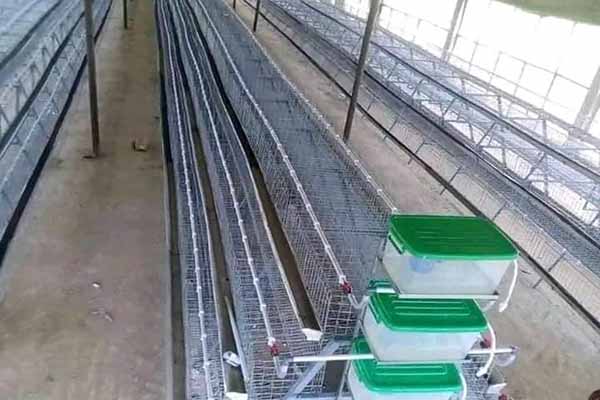Broiler Farming in Kenya: A Comprehensive Guide
Time : 2025-05-13
Broiler farming has become a significant sector in Kenya’s agriculture industry, offering farmers a lucrative opportunity to generate income. In this article, we’ll delve into the world of broiler farming in Kenya, exploring the basics, challenges, and opportunities that come with it. So, if you’re considering venturing into this field, keep reading to get all the insights you need.
Understanding Broiler Farming
First things first, let’s define what broiler farming is. Broiler chickens are raised specifically for meat production, and this type of farming involves rearing these chickens for their meat. Unlike layer chickens, which are bred for egg-laying, broilers are bred to grow quickly and reach market weight in a shorter period.
Why Broiler Farming in Kenya?
Kenya’s climate and fertile land make it an ideal place for broiler farming. The country’s agriculture sector has been growing rapidly, and the demand for chicken meat has been increasing, making broiler farming a viable business venture.
Setting Up Your Broiler Farm
1. Location and Land
Choose a location that is accessible to markets and suppliers. The land should be fertile and well-drained to ensure the health of your chickens. Ensure you have enough space for the chickens to move around, as overcrowding can lead to health issues.
2. Chicken Breed
Select a broiler breed that is well-suited to the Kenyan climate. The Cornish Rock, Ross 308, and Cobb 500 are popular choices due to their fast growth rate and good feed conversion.
3. Housing
Construct sturdy chicken houses that provide shade and protection from predators. The houses should be well-ventilated and designed to accommodate the number of chickens you plan to raise.
4. Feeding
Broilers require a high-protein diet to ensure rapid growth. You can either buy commercial broiler feed or prepare it yourself. Ensure the feed is balanced and meets the nutritional needs of your chickens.
5. Water
Provide clean, fresh water at all times. Adequate water intake is crucial for the chickens’ health and growth.
Challenges in Broiler Farming
Despite the opportunities, broiler farming in Kenya comes with its own set of challenges:
1. Disease Outbreaks
Chickens are susceptible to various diseases, which can be devastating for your farm. Regular vaccinations and biosecurity measures are essential to prevent outbreaks.
2. Market Fluctuations
The demand for chicken meat can be unpredictable, leading to fluctuations in prices. It’s important to stay informed about market trends and adjust your production accordingly.
3. Feed Costs
The cost of feed is a significant expense in broiler farming. Keep an eye out for feed prices and look for ways to reduce costs without compromising on quality.
Opportunities in Broiler Farming
Despite the challenges, there are numerous opportunities in broiler farming:
1. High Demand
The demand for chicken meat in Kenya is on the rise, providing a steady market for your produce.
2. Export Potential
Kenya can tap into the export market for chicken meat, especially to neighboring countries with growing demand.
3. Value Addition
By processing and adding value to your chicken meat, you can increase your profit margins.
Tips for Success in Broiler Farming
1. Education and Training
Invest in yourself and your workers by attending workshops and training sessions to stay updated on the latest farming practices.
2. Networking
Build a network of suppliers, buyers, and other farmers to stay informed and access resources.
3. Financial Planning
Develop a solid financial plan to manage your expenses and ensure profitability.
Conclusion
Broiler farming in Kenya offers a promising business opportunity. By understanding the basics, overcoming challenges, and capitalizing on opportunities, you can build a successful broiler farm. Remember, success in this industry requires dedication, hard work, and a willingness to adapt to changing circumstances.
Related Articles












